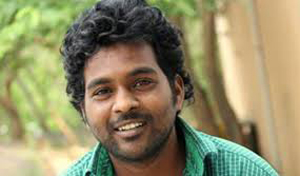New Delhi, Oct 6: Raising questions on Rohith Vemula's dalit status, a commission constituted by HRD ministry after the Hyderabad university scholar's death has said the material on record did not establish it and attributed his suicide to personal reasons.
 The Justice Roopanwal Commission, in its report to the HRD ministry, has given a clean chit to Union Ministers Smriti Irani and Bandaru Dattatreya, sources said.
The Justice Roopanwal Commission, in its report to the HRD ministry, has given a clean chit to Union Ministers Smriti Irani and Bandaru Dattatreya, sources said.
The University authorities too have been absolved of any blame for Vemula's death as the Commission has held that they were not working under political pressure.
The Commission is learnt to have raised questions about Vemula's caste status as a dalit saying that there is no proof that his mother V Radhika belonged to "Mala" community.
The commission is learnt to have said that Vemula's mother could have given the statement that she belonged to the 'Mala' community to support the caste certificate which was issued to Vemula.
The Commission in its report noted that Vemula's mother was not told the names of her biological parents by her foster family, according to the sources. It is therefore unlikely that she would have been told the caste of her biological parents, the Commission is understood to have said.
HRD ministry officials have, however, maintained that ascertaining the caste status of Vemula was not part of the Terms of Reference of the Commission. Therefore they would only focus on those recommendations which aim at ensuring that such incidents do not happen in the future.
The suicide of Vemula had triggered a huge political furore with the then HRD minister Smriti Irani coming under attack along with Labour minister Bandaru Dattatreya for having written a letter related to the matter.
It is learnt that the Commission felt that Vemula have committed sucide because of his "personal frustrations".
In its recommendation, the Commission has emphasised that there should be a proper counselling mechanism not just for students but also for research scholars.
The sources said that in its recommendations, the Commission has also emphasised that there should be proper grievance redressal mechanisms and equal opportunity cells so that unfortunate incidents like Vemula suicide can be prevented.





Comments
No Surprise since commissioner was nominated by HRD under (Manu)Smriti Irani and her god father.
Add new comment